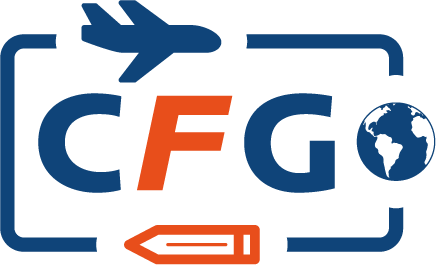Europe, once an economic powerhouse, is falling further behind in global competition. Germany, formerly the driving force within the block, has run out of steam. This development is due to a combination of unfavorable external geopolitical factors and market shifts, but also caused by self-inflicted bureaucratic and regulatory obstacles. Most panelists consented to this rather sobering status, whether they were managers of cargo airlines, airports, handling agents or independent market analysts.

Vincent Stamer, Senior Economist at Commerzbank AG, is one of the latter. He delivered a comprehensive forecast titled ‘The Future of European Trade’. His main message in a nutshell: Europe is falling back. Other economies have overtaken the EU, because they offer a favorable working climate in combination with attractive market conditions supported by their governments.
Shifting of supply chains
This is illustrated by the price-adjusted trade flows between JAN-MAY25 and JAN-MAY23, measured in euros. While in Europe, exports shrank by about EUR 75 billion, Asia (without China but including India) reports a growth of nearly EUR 400 billion during the same period. Both the U.S. and Latin America achieved a modest growth of their exports, reaching nearly EUR 30 billion. Leader of the pack is China, with exports surpassing EUR 250 billion. Stamer’s conclusion: world trade is increasingly shifting towards the APAC region, and so are international supply chains. This is consistent with WorldACD’s AUG25 market analysis: “There is a clear shift from ‘China/HK to USA’ markets to ‘China/HK to Europe’ markets, as the impacts of this year’s new U.S. trade and tariff policies continue to reverberate around the world.”
Hardest hit by this development is the German automotive industry which has lost its position as a leading car manufacturer in many markets, to Chinese competitors. This also applies to most EU member states, as demonstrated by the purchasing behavior of car buyers in Spain, Belgium, France, and Italy.
The tariffs imposed by Trump are another obstacle for companies that manufacture their goods in Europe and sell them on the important foreign market of the U.S. Stamer’s summary of ‘The Future of Europe’s Trade’ is as follows:
Challenging outlook
Due to unfavorable demographic trends, there will be a shift from an export-oriented economy to imports, as the age pyramid in Europe means that fewer productive workers will be available. Consumers will reduce their spending, especially in Italy and France, where the debts of both countries are likely to have an impact on pension levels. Finally, products from China and Southeast Asia will continue to increase competition for European manufacturers. All in all, the outlook for Europe is challenging.
Finally, the optimistic message
But there is one hopeful development: New trade partners will emerge – such as India or Brazil – offering the European industry alternative market options. While analyst Stamer emphasized this point at the ACCF meeting, after years of negotiations, the EU Commission has given the green light to the Mercosur Agreement which includes Brazil, Argentina, Uruguay, and Paraguay on the Latin American side. If the EU member states also approve the package, it would create the world’s largest free trade zone, which would have a positive impact on the exchange of goods and stimulate new bilateral trade flows. Added to this is the Comprehensive Economic and Trade Agreement (CETA) between the EU and Canada, which has been in place since 2017. A free trade agreement between the EU and India is also set to follow this year. Trade between these trading partners is not affected by Trump’s tariff policy, which is also good news in these uncertain times.




